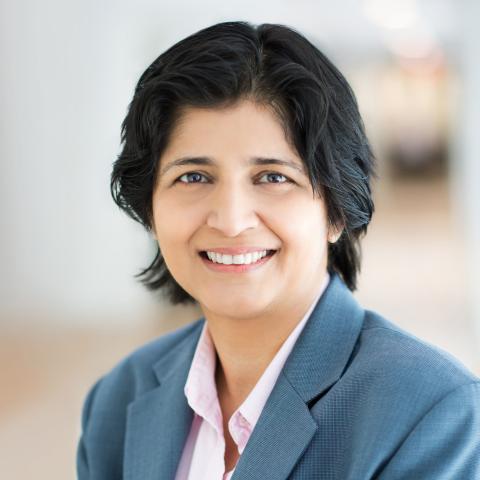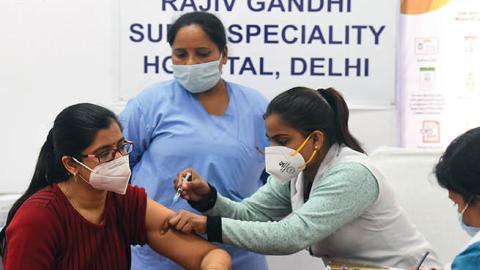India seems to have initiated ‘vaccine diplomacy’ to win over some of its neighbors already indebted to China. New Delhi may not have the large capital reserves that Beijing has used to lend heavily for wasteful infrastructure projects in South Asia. But India is the Pharmacy of the world, in addition to being the world’s largest democracy. India plans to obstruct China’s plan to take the lead in offering cheaper vaccines of the novel Coronavirus, which had originated in the Chinese city of Wuhan.
Most countries are worried about first vaccinating their own people, and India is no different. But India’s huge pharmaceutical capacity also enables India to offer millions of doses of the relatively cheaper vaccine to its neighbors.
As of now, this includes 1 million doses for Nepal, 2 million for Bangladesh, 150,000 to Bhutan, and 100,000 to Maldives. All these countries littoral to the Indian Ocean have been targeted by China for inclusion in its sphere of influence. Moreover, 1.5 million doses of India’s COVID vaccine are being sent to Myanmar, 50,000 to the island nation of Seychelles and 150,000 to Mauritius.
When India’s External Affairs Minister Subrahmanyam Jaishankar declared that India “will deliver to overcome the COVID challenge,()":https://abcnews.go.com/US/pharmacy-world-deliver-india-begins-covid-19-… it was clear that combatting COVID in the Indo-Pacific region is as much part of India’s foreign policy as it is a humanitarian gesture. India has also offered to train local health care workers and help build the infrastructure to vaccinate the populace in addition to supplying vaccines.
But Indian activism in the developmental arena and humanitarian diplomacy has not diminished its reluctance to project hard power. India hesitates to acquire or deploy military assets beyond its shores and expects to win hearts and minds by helping others.
India remains eager to be the first responder to humanitarian crises in the region, as it did in reaction to the 2004 Indian Ocean Tsunami and now the Coronavirus pandemic.
When COVID-19 struck, New Delhi was quick to act and pushed for a regional response to the pandemic coordinated by SAARC (South Asian Association for Regional Cooperation). India set up a SAARC COVID-19 fund and contributed $10 million to it. India also sent personal protective equipment and medical teams to Nepal and the Maldives to set up quarantine facilities and train their personnel in quarantining and COVID testing.
India also supplied the drug hydroxychloroquine to its neighbors and to friends and partners, including the United States and Brazil. It also acted in concert with other nations, both bilaterally and through the W.H.O. The Indian Navy kept two ships on standby for immediate deployment to any foreign country to evacuate Indian personnel or deliver emergency provisions.
As the world’s largest manufacturer of generic drugs, the country has long viewed itself as the pharmaceutical hub for the developing world. The world’s largest vaccine manufacturer, Serum Institute of India, has been licensed by AstraZeneca to manufacture 60 percent of the global supply of AstraZeneca’s COVID vaccine.
In addition to providing doses of vaccines as gifts to immediate neighbors, India is also ensuring its friends around the world have access to the vaccine. Brazil, a close Indian partner, has purchased 2 million doses, while Morocco has bought another 2 million. Saudi Arabia and South Africa also have purchased vaccines from the Serum Institute of India.
India’s distribution of the vaccine in South Asia, is a function of its strategic priorities. As the regional hegemon, India is concerned over China’s deepening economic and security ties with many of India’s immediate neighbors.
Although India has so far been unable to compete with China’s multi-billion-dollar loans under the Belt and Road Initiative (BRI), it appears to be doing better in its healthcare diplomacy. Nepal’s Minister of Health and Population recently acknowledged India’s goodwill in “providing the vaccine in grant.”
Notwithstanding its bonhomie with Beijing, Nepal has not yet granted approval to the Chinese vaccine, Sinopharm. Bangladesh, which was originally supposed to get 110,00 doses of the Chinese vaccine, also refused China’s offer after being told that it would have to contribute to the cost of the vaccine.
China’s overreach and India’s outreach are helping contain China’s sway over South Asia’s elites.
Soon after the pandemic erupted, China offered to send personal protective equipment (PPE) to countries around the world. Except for Pakistan, all other South Asian countries complained about faulty Chinese equipment, contrasting it with the safe equipment, medicines, and training provided by the Indians.
India knows that it might not be able to reduce China’s deep economic and security ties with Pakistan. But its efforts to win back Sri Lanka, and maintain Indian influence in the Maldives, Nepal, and Bangladesh continue. ‘Vaccine diplomacy’ is India’s latest move on the region’s political chessboard.
Read in The Hill















